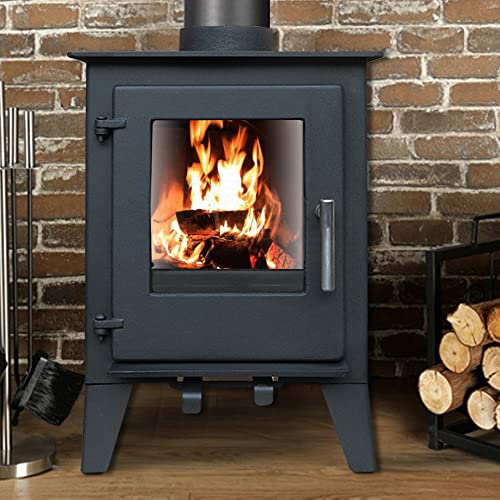Choosing a Defra Exempt Wood Burner
Smoke Control Areas are the most common classification for UK cities and defra certified stoves towns. If you live in a Smoke Control Zone and want to install an appliance, you’ll require a Defra approved stove. You can recognize them by their Defra-approved logo.
The stoves that are not subject to Defra have been designed to stop the fire from smouldering. This reduces the amount produced of smoke. They also burn fuel better.
What is what is a Defra Exempt Stove?
A Defra Exempt stove is a wood-burning domestic heating appliance that has passed the tests set out by the Department for Defra Certified Stoves Environment, Food and Rural Affairs. The Defra Exempt label is applied to stoves that have been tested independently and meet the strict criteria for emissions. Exempt stoves from Defra are able to be used in Smoke Control Areas.
You cannot burn wood without a DEFRA-approved stove if you live in an area where smoking is controlled. Installing the use of a non DEFRA approved stove in a smoke control zone is a violation of the Clean Air Act. You could be prosecuted.
From the outside, there is very little difference between the Defra approved stove and one that has not been given this status. There are a few things that stove manufacturers can do to make their appliances exempt from DEFRA. The DEFRA approved stoves come with burners that are not designed to starve the flames of oxygen. This could cause them to smoke or create excessive amounts of smoke.
To prevent this manufacturers will alter the air vent at the top of a Defra-approved stove. This will stop you from being able shut the vent completely because it would cut off the air supply to the fire. The adjustment is typically an insignificant screw located inside the front top of the stove, beneath the stove’s base or on the rear of the oven.
Stoves that are Defra Exempt can be multifuel stoves and can therefore be used to burn different kinds of fuels along with wood. This is a great option for people who live in areas that are designated as Smoke Control Areas and do not want to restrict their use to only authorized fuels. Some stoves that have Defra exemption can also be fitted with a 5″ liner for wood burning (if the manufacturer doesn’t demand the larger size). This is great news for those who wish to install wood burning stoves but are concerned about local smoke regulations.
What are the advantages of a Defra Approved Stove?
Defra-approved stoves provide many advantages that include the ability to meet local regulations as well as provide a warm and cozy fire. For example, they tend to have higher energy efficiency than non-Defra certified stoves and consequently reduce the amount of carbon that is produced when they are used. This can result in substantial savings on your heating bills. Additionally, Defra approved stoves are typically more user-friendly than non-approved stoves and can be equipped with simple controls.
When purchasing a wood-burning or multi-fuel stove, there are many different factors to consider including your heating requirements as well as aesthetic preferences and long-term goals. When choosing a stove it is crucial to take into consideration these aspects. A stove that is defra-exempt is a great choice for homeowners who live in smoke-controlled areas. They are eco-friendly and have been thoroughly tested.
Aside from meeting environmental standards, Defra approved stoves are made to offer superior combustion and flame distribution. This ensures the fuel burns evenly and creates a pleasant, consistent flame. Additionally, they tend to be more durable than non-Defra-approved stoves, meaning they will last longer and can stand up to higher temperatures.
Most Defra-approved stoves are compatible to use a 5 inch chimney liner, which is ideal for homes in areas with smoke control. It is important to remember that if you plan to use your stove with damp wood or other fuels that are damp however, it will still emit toxic fumes that could cause a charge from the local authorities.
In order to achieve Defra approval, stove makers must make changes to the appliance to limit how much air it will be deprived of during the combustion process. The air control at the top is usually modified to stop the complete closing. Shutting off the air supply to a stove for too long could cause it to smolder instead of properly burning and cause smoke that is unpleasant.
What is the Difference Between an approved Defra Stove and a Non-Defra Approved Stove?
A stove that has been approved by the defra can let you to legally burn wood in a Smoke Control Area. However, nondefra-exempt stoves will not. Stoves that have been approved by Defra have passed tests that prove they can burn wood safely and efficiently in smoke-controlled areas without producing excessive levels of smoke. This means that even if you reside in a smoke control area you will be able to use your new stove with no possibility of paying hefty fines.
A Defra-approved stove is also more efficient in terms of energy consumption than other types, producing more heat and emitting less harmful emissions into the air. This makes them a great choice for homeowners looking to save money and care about the environment.
Stoves which have been approved by Defra will carry the Defra Approved Logo that has been adopted by stove manufacturers. You can also find out if a stove is Defra-exempt by examining the specifications or on the website of the manufacturer.
There are many styles available when selecting a stove that is Defra-approved. Some are more traditional and will look stunning when placed in an old fireplace chamber or inglenook. Others are more modern and would be a great fit for a more modern living space.
Verify that the stove is Defra exempt. It should be listed on the DEFRA list of authorized appliances, or have the DEFRA logo. Many manufacturers will boast that their stoves are Defra-exempt however they haven’t been tested. It is much easier to sell a Clean Burn stove than to test it and incur the expense of becoming Defra-exempt.
A stove that has been Defra exempt will ensure that the wood that is used to power it is sourced sustainably, seasoned and dried properly before burning. This will mean that it is less likely to produce large amounts of smoke, which is beneficial to the environment, and also helps to keep the chimneys and flue systems in good condition for longer.
What is the difference between a Defra exempt stove and a non-Defra exempt stove?
When it comes to choosing the ideal stove for your home, there is many factors you should be aware of, including the design, heat output and fuel type. You might have seen on our website that a lot of stoves that burn wood and multi-fuel are DEFRA exempted or DEFRA approved. This is jargon that for the average homeowner, might seem like nothing more than a term used to sell products however, it can have significant implications for those living in smoke-free areas.
To be in compliance with the laws against the sale of logs in Smoke Control Areas Defra exempted wood burners have an internal mechanism that prevents you from closing down the air supply valve completely. If you reduce the air flow to the fire too much it can cause the wood to smoke and create smoke. This is in violation of the law. To prevent this from happening you should ensure that the wood you use in your stove is dried to a certain degree prior to using it on the stove.
You can also make use of the DEFRA exempt wood burner within a Smoke Control Area if you only burn the approved fuels listed on the DEFRA website. These include gas, semi-anthracite and anthracite as well as steam coal with low volatile. However, if you choose to install a non-DEFRA-approved stove in your home, and you burn wet wood or any other fuels that aren’t on the DEFRA list, then you could be fined up to PS1000.
Even if you do not reside in an area designated as a Smoke Control Area and you are not in a Smoke Control Area, an DEFRA exempt wood burner is an excellent option since they are usually more environmentally and friendly to neighbours since they can be operated without generating nuisance smoke. They are also more efficient and will keep your chimney system and flue cleaner for longer. It is important to know that all new stoves will need to meet the more stringent Ecodesign standards by 2022. These regulations set minimum efficiency levels, NOX and OGV ceilings and emission limits that are much higher than those currently in place for DEFRA-exempt appliances.
